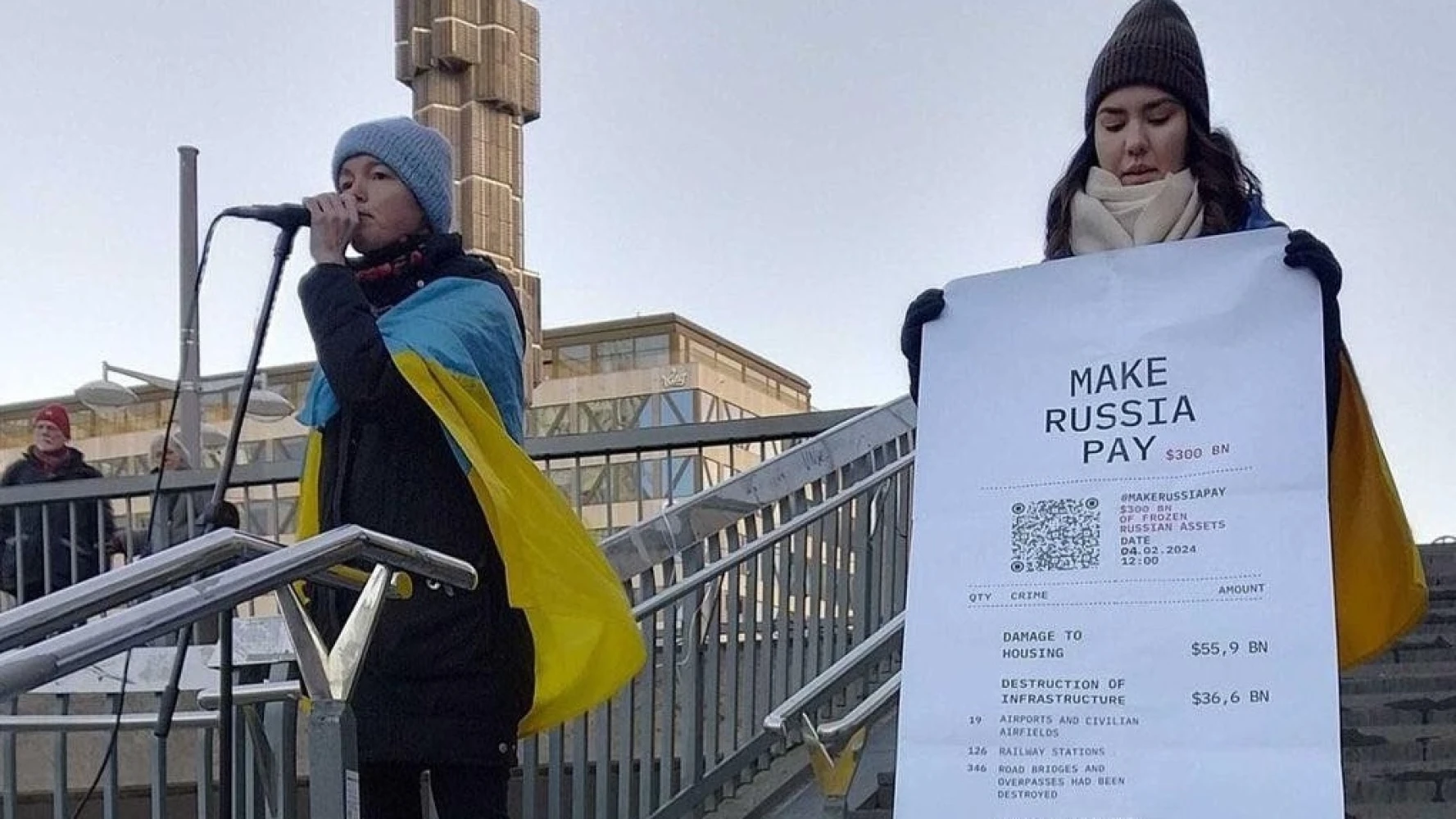
Why Russia Must Pay
It’s been two years since the illegal & unjustified full-scale invasion of Ukraine by the Russian Federation, and the result has been heart breaking un-calculable destruction. Estimates range from $411 billion (World Bank), to over $1.1 trillion (EIB) worth of damage to infrastructure and property since February 2022.
Furthermore, both estimates were produced before the Kakhova dam was destroyed by retreating Russian forces causing a tsunami of death and environmental damage in the Kherson region.
When you also consider that Luhansk, Donetsk and Crimea are now entering their tenth year of war and occupation, it’s easy to see that the rebuilding of Ukraine and compensation for victims of war crimes and human rights abuses could easily top $2 trillion. This scale dwarfs even the lavish social payments to workers by western governments during COVID.
Everything that’s been destroyed must be rebuilt, but who’s going to pay the bill?
History is written by the victor
The responsibility for post-war rebuilding is often left to the donor community represented by UN agencies and the World Bank, but the scale of destruction in Ukraine is far beyond the means of these groups. There is historical precedent dating back to the Roman empire for an aggressor to pay for the damage they inflict during wartime as a means of atoning for their aggression. More recent examples of reparations range from the Treaty of Versailles at the end of WWI which inflicted onerous penalties on Germany that ultimately lead to WWII. A far more nuanced and successful reparations programme was the Oil for Food tariff imposed on Iraqi oil exports to pay for the damage their invasion of Kuwait caused. Reparations, regardless of how they’re structured, are now a commonplace mechanism to ensure victims of war receive compensation and countries are rebuilt.
A thousand years of history demonstrate that the obligation to rebuild Ukraine rests firmly with Russia.
You broke it, you bought it
The Oxford dictionary defines reparations as "the action of making amends for a wrong one has done, by providing payment or other assistance to those who have been wronged". Reparations are often imposed by the victor as part of a peace agreement.
World opinion is united on the need for aggressors to compensate to their victims, but there are many opinions on how reparations are to be paid and the total amount. If the penalty applied is too harsh, the result can lead to the emulation of the Nazi party that ultimately led to WWII. If the penalty is too little or funds are misdirected, a frozen conflict within a nation can occur as in Kosovo following the Yugoslav war.
The cost of war
In Ukraine the cost to rebuild homes and infrastructure will be borne by the Russian Federation. Nations that support Ukraine are looking for ways to seize and repurpose frozen Russian state and individual assets to pay for the war. Unfortunately, complicated legal structures and international sovereign immunity laws make repurposing Russian assets challenging. This reality doesn’t mean Russia will not pay, but rather, we simply need to identify more creative solutions.
Collateralising the $220 billion of Russian central bank reserves currently frozen by the Euroclear system in Belgium is one option proposed by Belgian PM Alexander De Croo. Collateralising doesn’t mean that you actually seize the cash and use it to finance Ukraine directly. Instead, it’s used to borrow money from private capital investors like sovereign wealth funds and pension funds by issuing Peace Bonds that would be paid back from a future reparations program tied to a peace agreement.
But what if the war in Ukraine is never fully settled and it becomes a protracted conflict dividing Ukraine like North and South Korea? In this instance, there would be no peace treaty and no reparations program. A creative solution to this would be using existing mechanisms like tariffs to impose financial penalties on anyone trading with the Russian Federation, providing a steady stream of revenue to support Ukraine.
Putin will pay
Regardless of the mechanism, Russia will indeed eventually pay for the destruction it has wrought across Ukraine. It’s not a question of if, but rather how. Thankfully some of the smartest minds in the world are working with The Peace Coalition on creative solutions to ensure that G7+ taxpayers don't end up picking up the tab for Putin’s madness. Our goal is simple: make the cost of war so high, that aggressors just might think twice before they invade a neighbour.
Ukraine will be victorious, and Russia will pay.
